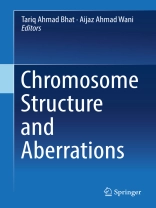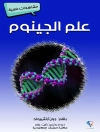This book is a compilation of various chapters contributed by a group of leading researchers from different countries and covering up to date information based on published reports and personal experience of authors in the field of cytogenetics. Beginning with the introduction of chromosome, the subsequent chapters on organization of genetic material, karyotype evolution, structural and numerical variations in chromosomes, B-chromosomes and chromosomal aberrations provide an in-depth knowledge and easy understanding of the subject matter. A special feature of the book is the inclusion of a series of chapters on various types of chromosomal aberrations and their impact on breeding behaviour and crop improvement. The possible mechanism, their consequences and role in genetic analysis has been emphasized in these chapters. A few chapters have also been dedicated on various techniques routinely used in the laboratory by students and researchers. Each chapter ends with an extensive bibliography so that the students and researchers may find it relevant to consult more literature on the subject than a book of this size can offer. The book is intended to fulfill the needs of undergraduate and post graduate students of botany, zoology and agriculture besides, teachers and researchers engaged in the field of genetics, cytogenetics, and molecular genetics. In general the readers will find each chapter of the book informative and easy to understand.
Table des matières
Chapter 1. Introduction to Chromosome (Shakoori A.R ).- Chapter 2. B-chromosomes (Douglas R.N).- Chapter 3. Organization of Genetic Material into Chromosomes (Shakoori A.R).- Chapter 4. Laboratory Techniques of Studying Plant Chromosomes (Kashtwari M).- Chapter 5. Flow Cytometry and its Utility (Halder M).- Chapter 6. Asynapsis and Desynapsis (Wani A.A).- Chapter 7. Cytogenetic Studies of Indian Drimia Jacq. (Urgineoideae:Hyacinthaceae) (Lekhak M.M).- Chapter 8. Banding Techniques in Chromosome Analysis (Shabir P.A).- Chapter 9. Karyotype Evolution and its Utility (de Resende K.F.M).- Chapter 10. Polyploidy and its Role in Evolution and Crop Improvement (Dar J.A).- Chapter 11. Mutagenic Effects on Meiosis in Legumes and a Practical Case Study of Vicia faba L. (Bhat T.A).- Chapter 12. Structural Changes in Chromosomes (Shakoori A.R).- Chapter 13. Numerical Changes in chromosomes (Shakoori A.R).- Chapter 14. Techniques of Chromosomal Studies (Qaisar U).- Chapter 15. Cytomixis and its Implications (Bhat T.A).- Chapter 16. Florescent In Situ Hybridization (FISH) and its Application (Shakoori A.R).
A propos de l’auteur
Dr. Tariq Ahmad Bhat has received his M.Sc and Ph.D from Aligarh Muslim University, Aligarh India. He is working as lecturer Botany in Department of Education, Govt. of Jammu and Kashmir, India. He is engaged in active research of chromosome analysis and mutation breeding of legumes. He is actively involved in genetic improvement of legumes and medicinal plants. He has published about 60 research papers, review articles and book chapters in reputed national and international journals and books. He has teaching experience of about 12 years.
Dr. Aijaz Ahmad Wani has done his Ph.D. in the field of Mutation Breeding from Aligarh Muslim University. He is working as Senior Assistant Professor in the Department of Botany, University of Kashmir India. He is actively engaged in teaching of Cytogenetics, Crop Genetics and Molecular Breeding, and Genetic Engineering of Plants. He has more than 45 publications in National and International Journals. His current research interests are Assessment and Conservation of Germplasm of Rosaceous Fruits with special reference to apple (Malus x domestica Borkh.) and Apricot (Prunus armeniaca L.) and Genetic Improvement of some important medicinal plants with special reference to saffron (Crocus sativus L.). His significant contributions are Development of Germplasm Repository and first Mapping Population of apple in Jammu and Kashmir State.












